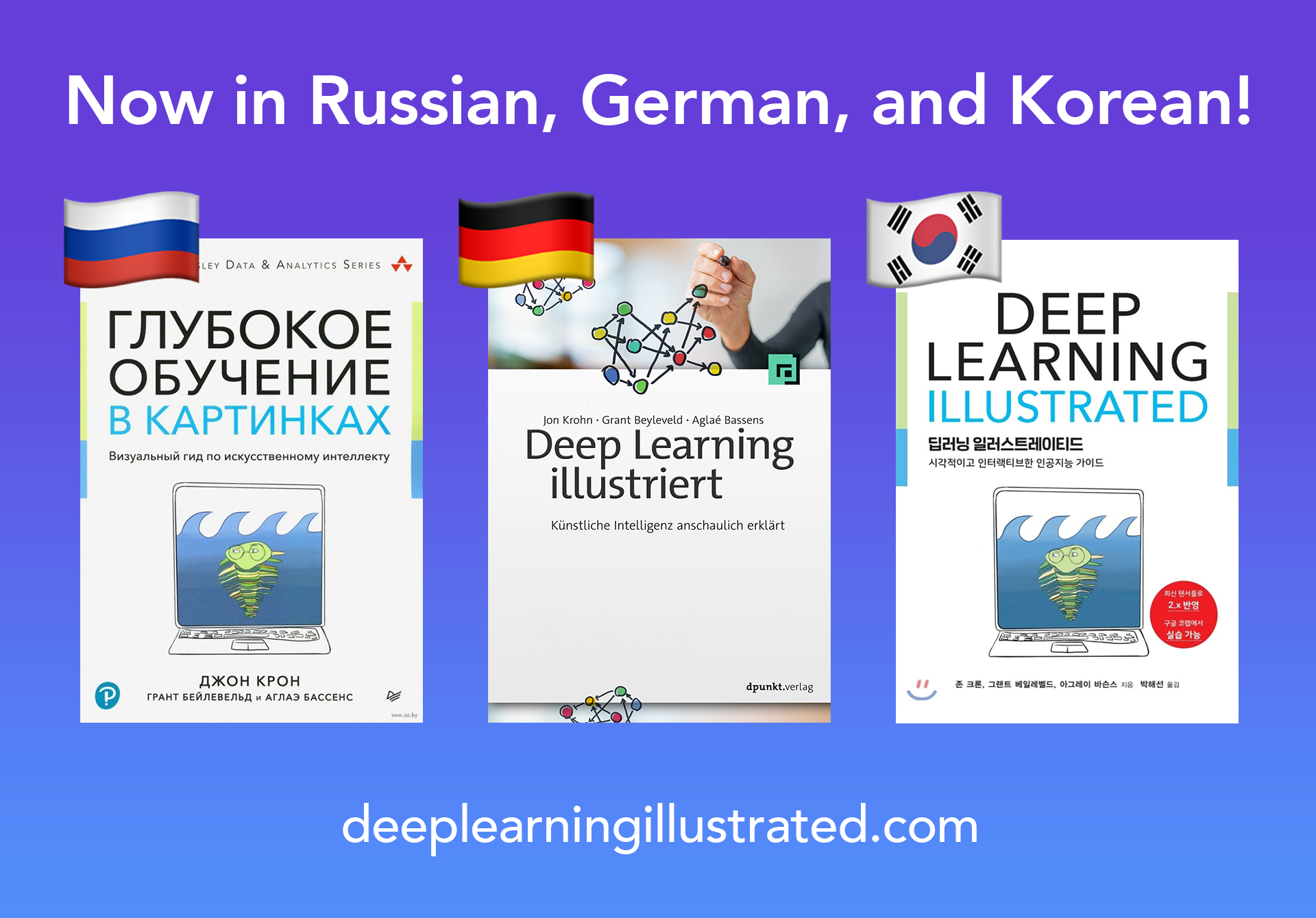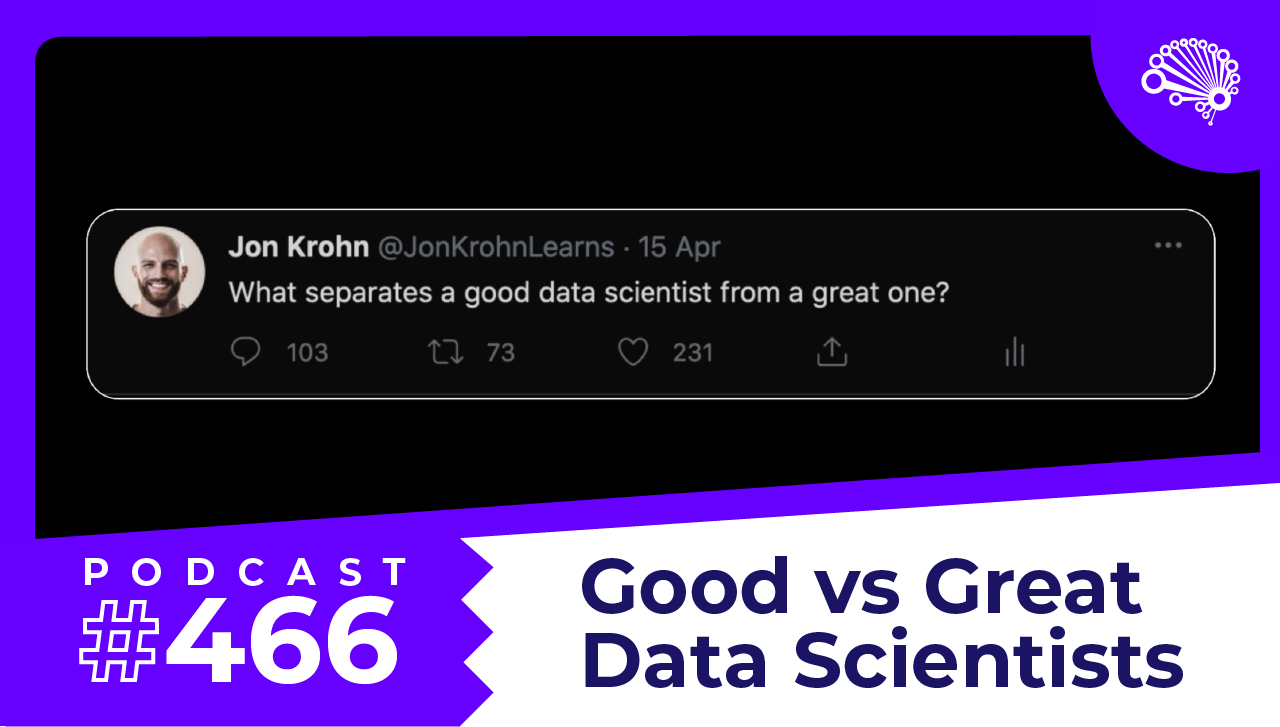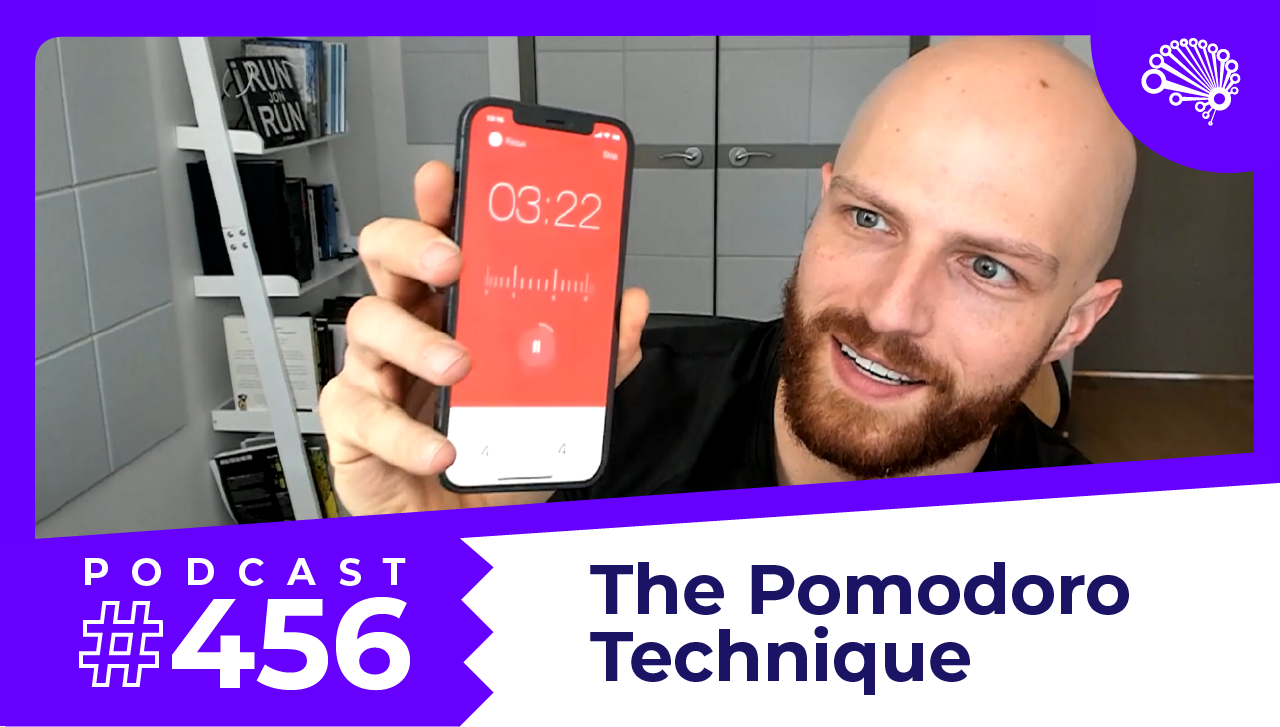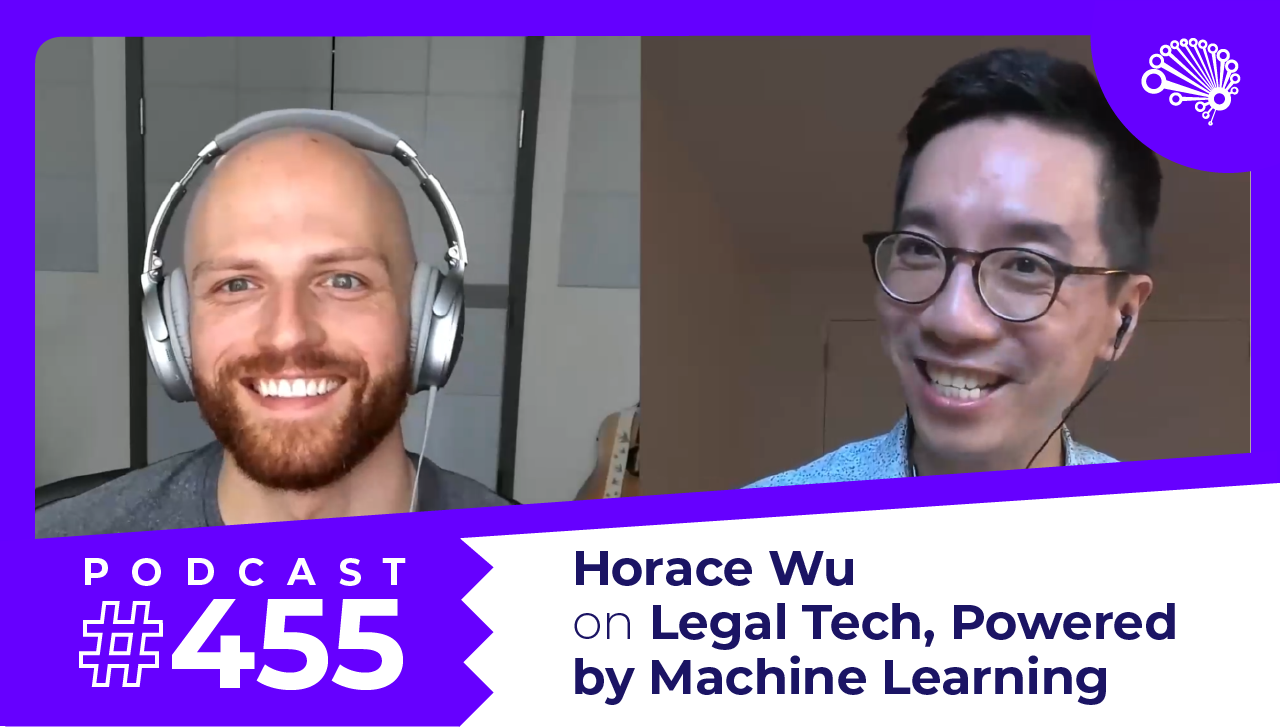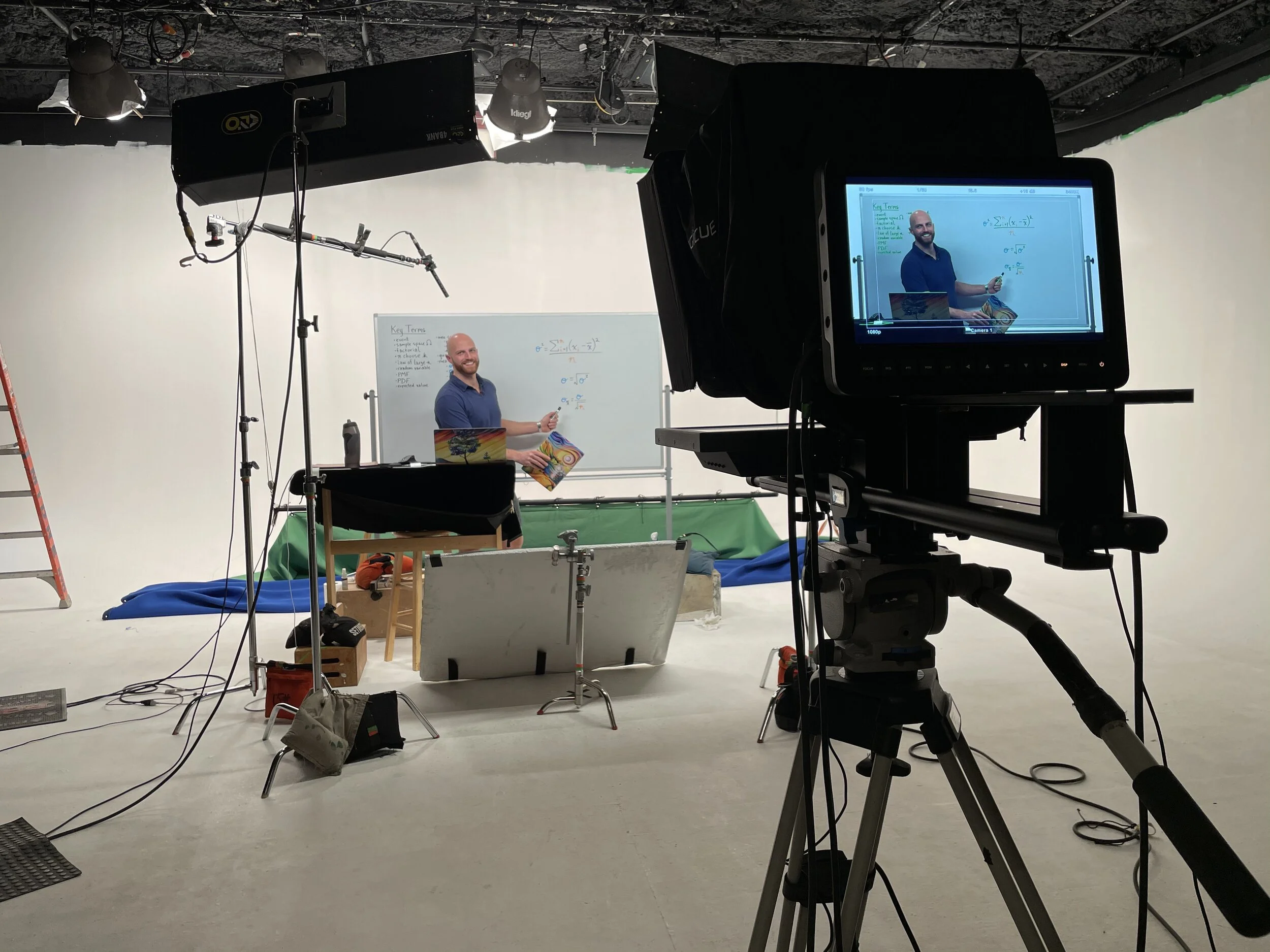With all of the Linear Algebra of my Machine Learning Foundations series already available on YouTube, it's time for a new subject: Calculus! The first Calculus video — an intro to the subject — is live today!
Up until now, I've been releasing my YouTube videos in thematic blocks, however I'm going to try something new now to set clearer delivery-timeline expectations with you. Starting with this video, I'll release a new YouTube video every Monday and every Thursday.
My Calculus for ML YouTube playlist is here. The series is full of hands-on demos in Python (particularly the NumPy, TensorFlow, and PyTorch libraries) and all of the code is available open-source in GitHub.
The first quarter of the series covered Linear Algebra. We're now kicking off the second quarter, on Calculus. The third quarter will be on Probability and Statistics. The final one will be on Computer Science (Data Structures, Algorithms, and Optimization).
Translations of Deep Learning Illustrated
My book, Deep Learning Illustrated, is now available in 🇷🇺 Russian, 🇩🇪 German, and 🇰🇷 Korean.
Thanks to Kathrin Lichtenberg and Haesun Park for wonderfully detailed and thoughtful translations. Japanese, Traditional Chinese, and Simplified Chinese translations are also in the works.
The book is packed with lucid illustrations by the talented artist Aglae Bassens, full-color equations, and easy-to-follow code. This approach sweeps away the complexity of building deep learning models, making the subject approachable and fun to learn.
More detail and discounted purchasing options are available at deeplearningillustrated.com (links to translations are listed at the bottom).
High-Impact Data Science Made Easy
Today, the wise Noah Gift weighs pros and cons of data science learning options (university degrees vs online certifications; full-time vs on-the-job) as well as how MLOps can quickly make you exponentially more impactful.
Noah has worked in countless technical leadership roles. He held the roles at companies ranging from tech start-ups he founded to prominent institutions like ABC, Caltech, and AT&T. Today, Noah’s founder of a consultancy called Pragmatic AI Labs — and he devises and teaches data science curricula at several of the most prestigious American universities, including Duke, Northwestern, and Berkeley. He has written eight books, including the bestselling Python for DevOps and the forthcoming Practical MLOps.
On top of all that incredible background, Noah has rich, well-formed life philosophies, which we dig into into detail. I learned a ton from him during this episode, and have been thinking about concepts we discussed time and again since filming. I highly recommend checking the episode out!
You can listen or watch here.
Good vs. Great Data Scientists
What separates a good data scientist from a great one? I asked this on Twitter recently and received hundreds of replies — some witty, others very thoughtful. For today's Five-Minute Friday episode, I review and summarize the thread.
The Tweet has had a crazy 7k engagements on 220k impressions so far — evidently it's a topic that lots of people have an opinion on. I highlighted some of my favorite individual replies in the video, including those from Martin Goodson, Chris Albon, Brandon Rohrer, Chelsea Parlett-Pelleriti, and Isabella Ghement.
What do you think? Let me know if I missed anything important!
You can listen to or watch my video summary here, or you can click through for the blog-post version.
The full Twitter thread is here if you'd like to dig through the entirety of the collective wisdom.
Read MoreAnalytics for Commercial and Personal Success
I believe the easiest way to attain success — in personal or professional endeavors alike — is to rigorously track and analyze the right data. Konrad Kopczynski is a master on this topic and he joins me for this week's guest episode.
Whether you're developing machine learning models, maximizing your company's profitability, or tackling a full-length Ironman triathlon, if you're disciplined about data collection, tracking, and reflection, you can iterate, improve, and achieve your dream state. This is a central tenet of my life and much of my ideology on it has been influenced by my near-decade-long friendship with Konrad.
Konrad is the founder and managing partner of impakt Advisors, a consultancy that specializes in harnessing data for, well, impact. They structure the various data sources into thoughtfully constructed data warehouses and then layer on top analytics, data-science models, and visualizations to enable real-time reports, dashboards, and predictions across all the key areas of a business, including digital marketing, customer retention, behavioral segmentation, and profit margin.
Listen to or watch here.
A.I. vs Machine Learning vs Deep Learning
"A.I.", "Machine Learning", and "Deep Learning" are terms that are often thrown around interchangeably. They shouldn't be! For Five-Minute-Friday this week, I define each of the three terms in straightforward language.
You can watch or listen to the episode here. Or you can expand below to read my blog post version.
Read MoreTime-Series Analysis
Matt Dancho joins me on this week's SuperDataScience guest episode, which is dedicated to time-series analysis. We cover what it is (modeling financial data and other quantities that vary over time) as well as the state-of-the-art techniques and tools.
Matt is the founder and CEO of Business Science, an educational platform dedicated to commercial applications of data science. He's a heavy contributor to open-source projects, particularly the Modeltime ecosystem of R packages he devised. Modeltime makes working with (and modeling!) time-series data both tidy and easy.
Listen or watch here!
Matrix of Data Voices
Honored to be included in the matrix of Data Voices (populated with two nested "for" loops?) by Kate Strachnyi of DATAcated.
I personally know and admire several of these Voices, all of whom have played a role in my development as a data scientist: Matt Dancho, Kirill Eremenko, Ben Taylor, Kirk Borne, Ph.D., Harpreet Sahota, and Kate herself.
There are countless others whom I know by their stellar reputation only but am hopeful to become close with soon... perhaps even as a guest on an upcoming SuperDataScience podcast episode. Keep an eye out 😉
Our Machine Learning Company, untapt, is Acquired!
After six years at untapt, I'm delighted to announce that we've been acquired (Times Square announcement pictured)! Being able to work directly alongside the absolute rockstars at GQR Global Markets every day is a dream come true.
GQR is a global talent acquisition firm, named one of the fastest-growing in each of the last five years — including, remarkably, experiencing hyper-growth through the past pandemic year. By marrying untapt's best-in-class data science and engineering with GQR's best-in-class professional services, we expect further hyper-growth together for many years to come.
Congratulations to everyone on the untapt team, who are all now welcomed into the Wynden Stark family. Massive thanks to everyone on the current team for their relentless innovation and dedication, as well as to the many others who've been with us previously and helped us grow to the extraordinary place we find ourselves today.
This acquisition means that untapt can make a greater impact than ever before much more rapidly than ever before. We have tons of exciting developments in the works — I can't wait to share them with you over the coming months!
Read the full press release here.
It Could Be Even Better
When something positive happens in my life, my mind tends to jump to the negative flipside right away. To fend this off, I now repeat to myself "It Could Be Even Better" when something good happens. The mental impact has been sublime.
For this week's Five-Minute Friday episode, I provide specific examples across my professional, fitness, and personal lives where repeating this "It Could Be Even Better" mantra has proved game-changing. If you too slip into negative thinking when something good happens, perhaps it's a simple trick that'll work for you too!
Watch the video above or click through for the full post.
Read MoreMLOps for Renewable Energy
You're in for a treat with Samuel Hinton! The first half of this week's guest episode is a mind-blowing journey on our ever-expanding universe. The second half is on Machine Learning Operations and how Sam uses it to shift the world to clean energy.
Sam is a witty polymath. He's a data scientist, astrophysicist, software engineer, former Survivor contestant, beloved online instructor, and most recently a fiction writer. In his role as Data Scientist at the Arenko Group, a renewable energy company, he leads MLOps, enabling efficient experimentation and productionization of ML models.
Listen or watch here.
The Linear Algebra quarter of my Machine Learning Foundations series is complete!
The final eight linear algebra videos from my Machine Learning Foundations series are live today! Having covered the fundamentals of linear algebra theory in the preceding videos, we can now apply the theory to ML techniques like data compression, regression, and classification.
The eight new videos are:
It's been an epic personal journey to here. Starting with the first linear algebra video in July of last year, there are now a total of 48 videos in my ML Foundations series — over seven hours of content that constitute the first quarter of the series. Up next are several dozen videos on calculus, which will form the second quarter of content. (Probability/stats will be the third quarter and computer science the fourth.)
The playlist for my entire ML Foundations series is here. The series is full of hands-on demos in Python (particularly the NumPy, TensorFlow, and PyTorch libraries) and all of the code is available open-source in GitHub.
The History of Algebra
Algebra lies at the core of all modern data science approaches. We've been working on it for a while though — it's at least 3900 years old! For Five-Minute Friday today, I cover the Babylonian genesis of the field through to today's ML applications.
Listen or watch here.
Tackling Climate Change with ML
Vince Petaccio II joins me on the SuperDataScience podcast this week to detail how individuals in general — and data scientists in particular — can make a meaningful difference in the fight against climate change.
Particular green machine learning applications we covered include:
• Optimizing energy delivery
• Precision agriculture and vertical farming
• Identification of misinformation
• Climate modeling
Vince is a data scientist at Amazon Web Services (AWS), a sorely-missed former colleague of mine at untapt/GQR, and a brilliantly articulate advocate for climate action through his work as a volunteer lobbyist for the Citizens' Climate Lobby.
Listen or watch here.
Shameless Plug: Please Nominate Me for my Content :)
The Data Community Content Creator Awards are now accepting nominations. If you could please take a couple of seconds to visit this link and nominate me for:
Category 2 for my YouTube channel
Category 7 for the SuperDataScience podcast I host
Category 8 for my book, Deep Learning Illustrated
…I’d greatly appreciate it!
I also hope to see you at the Data Community Content Creator Awards themselves on April 27th, 2021 — I’m already all dressed up!
Behind the Scenes
Today’s Five-Minute-Friday episode is a behind-the-scenes tour of a professional studio configured for filming video tutorials. Specifically, we had just wrapped filming a ~10-hour series on Probability and Statistics for Machine Learning.
I’ve been fortunate to work with Erina Sanders and Guillaume Rousseau at Production Central Studios and Stages since 2017, including on my bestselling Deep Learning with TensorFlow videos. In this video you meet Erina and Guillaume — and hear about how they make the magic happen!
You can listen or watch here.
(And yes, I know! I learned my lesson and will now film in landscape mode not portrait on my phone!) 🤦♂️
Landing Your Data Science Dream Job
This week, the inspiring Harpreet Sahota joins me on the SuperDataScience show to fill you in on how to land your data science dream job — whether it’s a more senior role or your first foray into the field.
Harpreet is an eminent contributor to the data science community. It's unbelievable how much he gives to world each week. He:
Hosts the The Artists of Data Science podcast
Is the principal mentor at Data Science Dream Job
Hosts weekly office hours that anyone can drop in on
With Kate Strachnyi, founded and hosts the inaugural (and forthcoming) Data Community Content Creator Awards
Despite all of the above, Harpreet's remarkably humble — and capital-S Stoic! Oh, and he has a day job too! He's the lead data scientist at Price Industries, a global industrial leader in HVAC manufacture, and in the episode he details for us data models he's built for them.
You can listen (or watch) here.
The Pomodoro Technique
I’ve experimented with a lot of productivity techniques and quantitatively track their effectiveness every day. One of my long-standing favorites is the Pomodoro Technique to eke creative, highly focused work out of minimal effort 🍅
You can listen to or watch today's Five-Minute-Friday episode on the Pomodoro Technique here.
In addition to Pomodoros, some other techniques I've covered on the podcast are mindfulness (here and here) and a number popularized by James Clear over the years (see here).
Legal Tech, Powered by Machine Learning
This week, Horace Wu fills us in on how to bootstrap an ML start-up — without outside capital while still earning an income! We also cover how AI can advance the legal sector and how to pivot your career from services to start-up founder.
Syntheia, the latest company Horace founded, augments human lawyers with the power of the (typically millions) of historical documents at their firm. Using a combination of NLP and machine vision (then surfaced in Microsoft Word using javascript), Syntheia provides lawyers with suggestions on tricky points in contracts and automates the generation of clauses.
Prior to founding Syntheia, Horace was an attorney at top firms in Australia and the US. At Syntheia, he works closely with his team of data scientists and developers to solve complex problems for the legal profession. Especially for a supposedly non-technical founder, he displays a stunning depth of knowledge of NLP models and full-stack model deployments.
You can listen and watch here: superdatascience.com/455
Filming "Probability and Stats for ML" LiveLessons
We had a four-day studio session Thursday through Sunday filming what will be ~10 hours of interactive videos on Probability and Statistics for Machine Learning. It was a marathon, but it was also a lot of fun — and I think you'll love the content 😃
On next week's Five-Minute-Friday episode of the SuperDataScience podcast, I'll be providing you with a backstage tour. We shot at Production Central Studios and Stages in Manhattan's Union Square. Thanks as always to Erina Sanders for producing masterfully and Guillaume Rousseau for assisting her impeccably.
All of the Python code is available open-source in GitHub today.
The videos themselves will appear in the O'Reilly learning platform in a couple of months, with thanks to Pearson's Debra Williams for bringing another project concept of mine to life.

